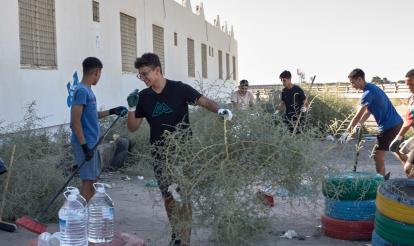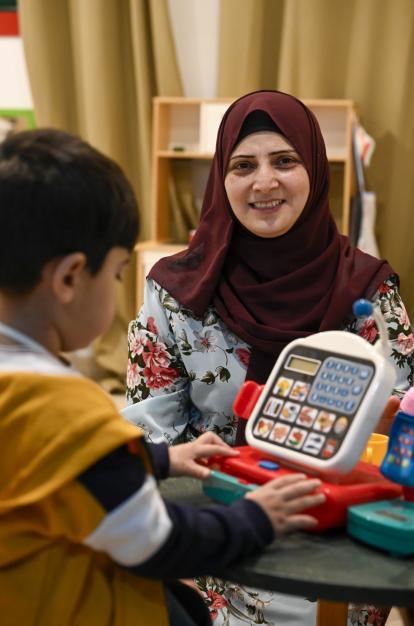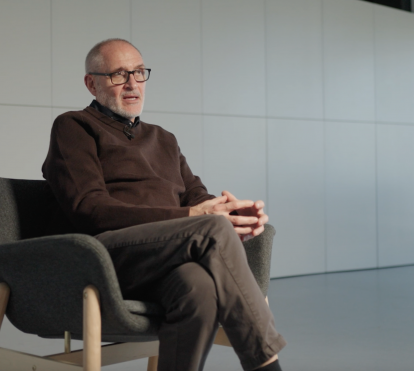
You are reading:

You are reading:

24.03.25
6 minutes readOver the last 25 years, the Spanish third sector has undergone a significant evolution, shifting from a primarily welfare-oriented role to a more holistic and systemic approach focused on defending rights and empowerment. This change has been supported by the Calls for Social Projects of the ”la Caixa” Foundation, which have backed more than 23,500 initiatives since 1999. Toni Bruel, collaborator of the Relations with Social Entities Department of the Foundation, and several representatives from social organisations, discuss this evolution and the challenges that still lie ahead.
At the end of the 20th century, social action in Spain had a predominantly welfare-based approach: basic necessities were provided and essential services were made available to vulnerable sectors of the population. “We attended to specific and basic needs,” recalls Toni Bruel, collaborator of the Relations with Social Entities Department of the ”la Caixa” Foundation. However, accumulated experience and lessons learned led to a shift in the third sector. “Today, support is based on listening to people, understanding their social context and integrating them into itineraries. The individual is no longer just a recipient of aid but becomes the main agent of their own process,” emphasises the humanitarian aid expert, who has witnessed these changes first-hand.
This new approach – more comprehensive in addressing multiple social vulnerabilities and based on social rights – is structured around four key pillars, according to Bruel: “The pursuit of equal opportunities, comprehensive social and healthcare support, the promotion of personal autonomy and the creation of a diverse and inclusive society.”
In this transformation process, the ”la Caixa” Foundation has played a fundamental role, supporting the shift through its Calls for Social Projects. Since 1999, they have supported the work of 8,446 organisations and enabled the development of 23,518 projects, benefiting over 10 million people in vulnerable situations. To mark the 25th anniversary of these calls, events have been held across Spain with partner organisations to analyse the evolution of social action within the third sector and discuss future challenges.

The Galician Confederation of People with Disabilities (COGAMI), with 35 years of experience, is a prime example of this paradigm shift. The organisation has moved from an enabling social action approach to focusing on empowerment and personal autonomy. “We’ve replaced the assistance-based and medical model with one based on rights. Our goal is for people with disabilities to manage their lives under the same conditions as any other citizen,” emphasises its president, Anxo Queiruga.
Thanks to the support of the ”la Caixa” Foundation, COGAMI has launched projects that combine labour-market integration with the promotion of independent living and personal autonomy. “Our aim is to improve inclusion and normalisation, and this is achieved through a cross-cutting approach,” adds Queiruga.

A similar process is described by Rosa Balaguer, general director of Casal dels Infants per a l’Acció Social als Barris, in the Raval neighbourhood of Barcelona. Her organisation went from directly meeting the basic needs of the children and young people it served to relying on the local community fabric and complementing the work of various stakeholders in the area to ensure that all families in the neighbourhood had access to key services: “We realised that providing a comprehensive response to just a few children made no sense.”
Their work has also evolved “from leisure-time education to developing key skills to overcome social exclusion”, and the organisation is increasingly focusing on evidence-based interventions in essential aspects to guarantee equal opportunities: “For instance, we’ve significantly expanded our support for children aged 0 to 3 through maternal and child services.”
Meanwhile, José Carlos Bermejo, general director of the Centre for the Humanisation of Health since 1992, highlights the evolution of his organisation, which focuses on social and healthcare services “from a model centred on addressing the physical needs of individuals and emergencies, to a more comprehensive approach that considers six dimensions: physical, cognitive, emotional, relational, ethical and spiritual.” According to Bermejo, this represents “a process of humanisation that encourages us to see people as we are: dignified beings of a significantly different category from the rest of the species.”
The third sector must now tackle challenges such as an ageing population and increasing urban concentration, both of which are already shaping new realities. Daniel Osiàs, director of the Marianao Foundation, warns of the growing inequalities, which are becoming more pronounced in peripheral areas, as well as the rise in diversity and the already concerning issue of social isolation. “We’re witnessing a shift in social composition, and social organisations must create spaces for coexistence and mutual support. We need to work towards strengthening the most marginalised communities and harnessing the richness of diversity.”

To achieve this, Osiàs considers it essential to foster a citizenry with a more respectful outlook on diversity, as well as to promote collaboration between different stakeholders. The current complexity demands coordinated interventions. “We’re talking about the public administration and the social sector, but also about the full range of social, educational and healthcare resources in local communities, as well as the business and productive fabric. Social organisations are now leading the development of community frameworks that bring together all these actors to design collective social responses.”
Polarisation, the unequal distribution of wealth and the emergence of artificial intelligence are other challenges that, according to Toni Bruel, will shape the roadmap of the third sector in the coming years. Added to this is the threat of climate change and its impact on the most vulnerable people, as well as ensuring equitable access to education and advances in biotechnology.
Over the past 25 years, the Calls for Social Projects of the ”la Caixa” Foundation have demonstrated their ability to adapt to new realities and trends, driving the consolidation of the third sector and transforming millions of lives. “Moving together hand in hand allows us to broaden our perspective,” says José Carlos Bermejo, while Anxo Queiruga emphasises that partners like the ”la Caixa” Foundation are “absolutely essential to keep moving forward.”
Toni Bruel highlights that: “Over these years, the calls for proposals have not only supported organisations, but have also listened to us and helped us introduce innovations to progressively improve results.” The key, he adds, is for them to continue “incorporating these social changes into their approach and their conditions, so that organisations can respond to new challenges.” The message is clear: evolving together is essential for progress, especially if we want these improvements to benefit society as a whole.